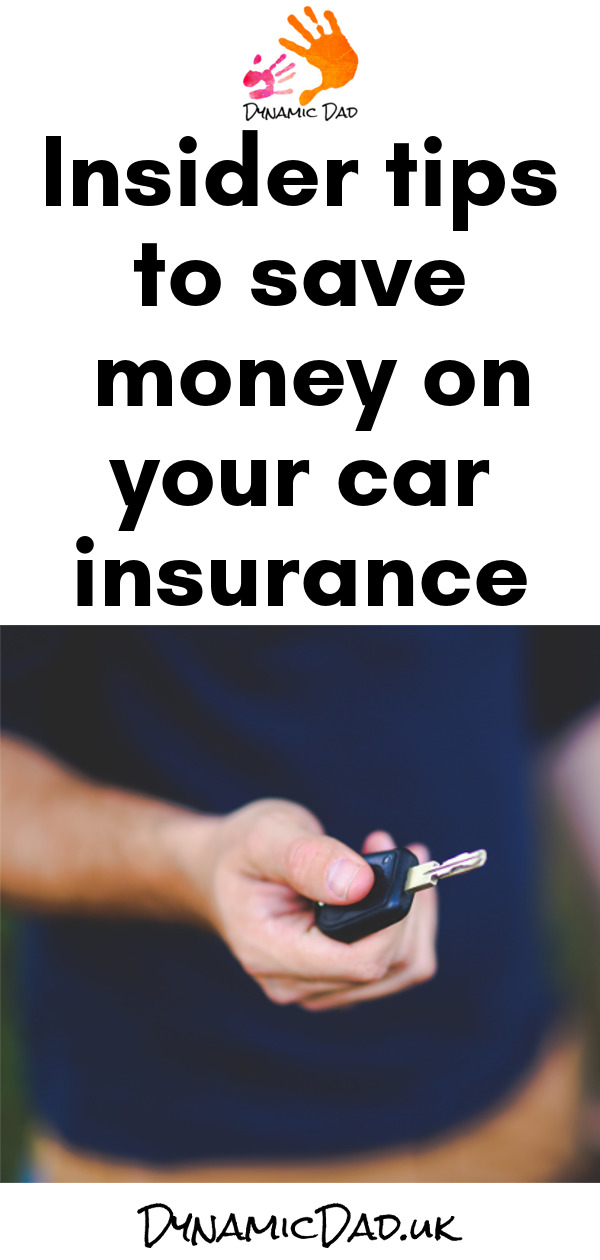How to save money on your car insurance
Car insurance due? Most of us know now that insurers make their money from customers who just renew without shopping around, which is why many of them have added the ‘convenience’ of automatically renewing for you – so you don’t have to go through the hassle of shopping. Brilliant right? Wrong!
Even cancelling your existing policy on the renewal date, and taking out a brand new policy with the same company can come in cheaper than renewing. Calling them to haggle can help, but it’s always worth a look to see if there’s a better deal for you.
To that end, here are a few money saving tips for you:
1. Shop around.
First off, there’s the obvious. Insurers want your business and will compete with each other to get it. Get quotes from several of the price comparison websites: GoCompare, MoneySupermarket, Compare the Market – many feature the same insurers but with slightly different policies and slightly different prices.
Also check out some of the insurers not on price comparison sites – they too have good deals.
However, before you go racing off to the sites linked above and throughout the post, read on to find out what to tell them so you know how to pay less for your car insurance.
2. Renew three weeks in advance.
Don’t wait until the last minute, get your quote – and actually sign up for it – three weeks ahead of your renewal date. Three weeks / 21 days beforehand is the ideal time to get the best car insurance price.
From the insurers perspective, you’re a more aware and organised person so more likely to be safer on the roads, with where you park, etc.
For them, this is all backed up by statistics too – so if you want to cash in on their research, renew a few weeks ahead.
3. Add named drivers.
In some cases adding a named driver can actually reduce your car insurance premium.
Don’t act fraudulently though – if the other person isn’t the main driver, don’t claim they are – but adding someone to your policy can in some cases help you save on your renewal premium.
This is especially true where the other driver is more experienced, older, has a good or better claims history or is generally a lesser risk than you.
4. Opt-in to a “black box”.
Okay, this could actually work against you – but as long as you don’t drive like an idiot then said black box can prove to the insurance company that you drive appropriately and responsibly, thus reducing your risk and your premium.
If you are the type that often finds yourself thinking “that was close”, the box could have a double benefit for you – if you know you’re being watched you’re more likely to moderate your behaviour, and your driving style – so you actually become a better and safer driver as well as reducing your car insurance cost.
5. Get better cover.
It used to be the case that less cover (i.e. not ‘Comprehensive’) was less expensive. Now, this is often not the case. Again it’s a matter of statistics and perspective.
Those who opt for lesser cover (“because it’s only an old banger”) are more likely to be involved in a claim, driving up premiums for them and everyone else.
Take a look and see if you can reduce the cost of your motor insurance by opting for better cover – how’s that for a win-win?!
6. Fit a Dashcam
Several insurers now offer discounts for drivers using dashcams. There are generally stipulations on make, model and features and some require you to have a unit on their ‘approved’ list, but in reality these are the cameras you should be considering anyway as they provide useful quality imagery and GPS data. As with the black box, if you’re at fault it’ll undermine any fibs you were planning on telling, but if not you have graphic proof of what happened, where you were and how fast you were driving.
Just like the black box too, as you’re being monitored – even if only by yourself – you’re likely to take less risks and drive better, making the roads safer for everyone.
The four Nextbase Dash Cams below have received top reviews across the most popular and reliable review networks, ranging from around £50 – £250 depending on when you buy, so there’s an option for everyone. There are other brands, and normally I’d list them – but these cameras wiped the floor with the competition, so there’s not a lot of point. I wouldn’t use them, so I won’t recommend them.
7. Pay annually.
There are of course reasons many of us pay monthly – several hundred can be a big hit in one go. However, look at the difference in cost between the total paid in monthly instalments and the total when paid annually.
Many insurers now charge either a fee to pay monthly, or interest via a credit agreement. Rather than sign up for this with them, would it be cheaper to use your existing credit card and pay their interest instead?
You’ll need to check your rates of course – and factor in any points or other incentives available (that you’ll actually use) – 2 for 1 cinema is great for those that go regularly and can add up to quite a saving, for those that don’t – does it really add up?
Could the Nectar/ClubCard/AirMiles etc. points you’d gain from your payment card offset the cost?
Could you pay off your card in three instalments instead of twelve by using your credit card, and save on the interest costs that way?
8. Check your occupation.
Most people describe what they do in different ways to different groups of people. Some carry a greater risk and therefore price tag.
Don’t be dishonest, but do make sure you’re using the most premium friendly job description and industry with your chosen car insurer.
Let’s say you’re a Sailor – are you a Yachtmaster, Seaman, Marine Pilot or Merchant Seaman? Are you a Fisherman? There’s no description for Sailing Instructor, so are you a Teacher in the Marine industry?
As you can see – there are possibly many options that would accurately describe your job, so pick the most beneficial – but still accurate – one for you.
9. Check the current value.
Don’t overvalue your car – you’re likely to pay a higher premium but won’t get the benefit if you have to make a claim.
The current value of your motor will be calculated from an industry standard based on age, condition and mileage at the time of any claim – and this is what you’ll get. There is no point in trying to inflate your car’s value in order to get a better payout in the event of a claim, it won’t work. The flip side of that coin though is to not undervalue your car either – if market value is greater than the value you’ve insured for – you’ll still lose out.
Check the various sales websites for the average value of a selection of equivalent age, mileage and condition cars to yours and use this as your guidance.
10. Check your mileage.
The reality is a few minutes of preparation could save you plenty.
Your MOT history will show the mileage at each test, which should be almost annually – unless you know your habits are about to change, use this to guide your estimate. Can’t find the old certificates? You can check the MOT history online for free. There’s a fine balance here in that the more time you spend on the road, the more likely you are to be involved in an incident. At the same time though, if you really don’t drive very often you’re also more likely to be involved in an incident as you’ll be less practised and experienced.
Remember – honesty is key, the insurers can and will check mileage history too – so don’t put yourself at risk of having your insurance invalidated by falsifying information.
11. Check the extras.
Do you really need to have all the breakdown, lost key, legal expenses and unexpected birthday card insurance too?
Maybe, maybe not. Some of these may already be covered elsewhere – do you have cover with your bank or credit card for example?
Don’t pay twice for something you don’t need.
Check value against cost too – how much would a new windscreen actually cost for your car? A replacement key?
In some cases these could be thousands and hundreds respectively. In others it could be £100 or less and a few quid from the local Timpson.
Depending on which category you fall into, is it really worth shelling out for the extra cover now, or would you be better self insuring by committing to pay yourself in the event of a loss?
12. You can change mid policy.
So your policy isn’t due for a while, but you wish you’d known the above the last time your paid your car insurance?
You’re in luck!
Most policies can be cancelled – for a fee – at any point throughout the term. Get a quote for a policy to start in three weeks time, find out what you’d get back from your current provider and if it’s worth it even after paying the fee, go ahead and change!
What have you got to lose? Get yourself over to these comparison sites and see what they can do for you: GoCompare, MoneySupermarket, Compare the Market …and don’t forget your Nextbase Dash Cam!
Do you have any other car insurance tips? I’d love to hear them so I can share them too!








Some great tips! #dreamteam
My mileage was so low that the insurance company actually made me take photos and show service records to prove mileage. They don’t seem to understand that I work from home and Hubster works just several miles away. We put almost no miles on our cars. #DreamTeam
I wish I was in your position – over 20k miles last year, most of that to spend time with kiddo!